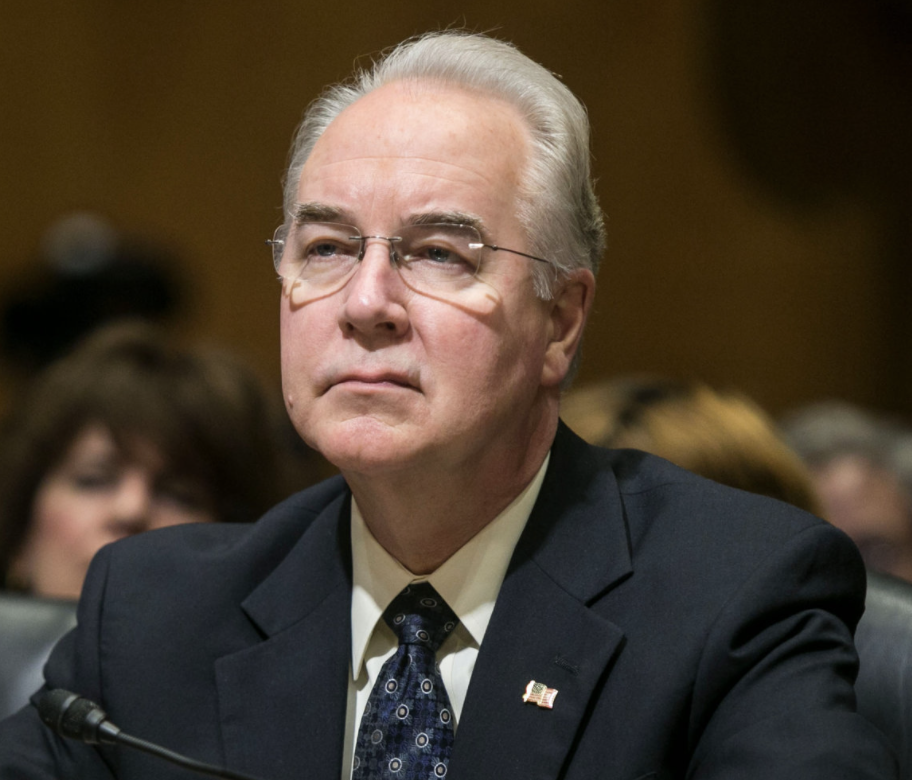
On January 24, 2017, the Senate Finance Committee held a hearing to consider President Trump’s nominee for the Secretary of the U.S. Department of Health and Human Services (HHS), Representative Tom Price. This was Representative Price’s second time appearing before a Senate Committee as he already had a courtesy hearing with the Senate Committee on Health, Education, Labor, and Pensions on January 18th. The following Senators sit on both the Finance and HELP Committees, which gave them two opportunities to ask the nominee questions: Orrin Hatch (R-UT), Pat Roberts (R-KS), Johnny Isaakson (R-GA), Tim Scott (R-SC), Bill Cassidy (R-LA), Michael Enzi (R-WY), Michael Bennet (D-CO), and Bob Casey (D-PA). As with the HELP Committee’s hearing, questions took a decidedly partisan tone with Republican Senators asking more positive questions and Democratic Senators asking more critical questions.
One common thread among the questions from members of the Committee was Medicaid. Many of these questions focused on block grants for Medicaid, a policy option that Representative Price supported as chairman of the House Budget Committee. Representative Price dodged the questions about block grants, stating only that he was committed to a Medicaid system that “responds to patients, not government.” When presented with analysis stating that block grants would cut federal spending on the program by about $1 trillion over 10 years, Representative Price questioned the accuracy of that number by saying it looked at the option in a silo. While Representative Price dodged a number of questions, he responded to one from Senator Sherrod Brown (D-OH) regarding those with pre-existing conditions by stating that “I commit to you that we will not abandon individuals with pre-existing illness or disease.”
Chairman Hatch and Senator Mark Warner (D-VA) asked Representative Price questions about the Center for Medicare and Medicaid Innovation (CMMI). In the past, Representative Price has spoken out against the mandatory nature of some of the CMMI models and he has been a noted opponent of the Comprehensive Care for Joint Replacement (CJR) model. When asked by Chairman Hatch about his position on the work at CMMI, Representative Price stated that innovation is important in health care but that CMMI has gotten “off track.”
Republican Senators, including Senator Roberts and Senator Pat Toomey (R-PA), also repeatedly brought up the “failing” individual markets created through the Affordable Care Act (ACA). When asked by Senator Roberts how we would provide stability to improve individual markets, Representative Price stated that the small group and individual markets needed to be reconstituted and that he would provide stability in the conversation and “lower the temperature” of the debate.
Throughout the hearing, many Senators brought up narrower issues that were specific to the states they represented or their interests as politicians. Senator Rob Portman (R-OH) asked what would be done to ensure access to addiction treatment and for a commitment to implementing the Comprehensive Addition and Recovery Act (CARA) and Representative Price committed to carrying out the law as it was passed. Later in the hearing, Senator Toomey discussed funding for Alzheimer’s research. Believing that resources were not distributed proportionally, the Senator asked Representative Price to commit to working with himself and others to assure better proportionality to which Representative Price replied in the affirmative. In addition, Senator John Thune (R-SD) expressed an interest in working with Representative Price and HHS staff on the Indian Health Service (IHS); Senator Chuck Grassley (R-IA) discussed the Physician Payments Sunshine Act; and Senator Warner asked for a commitment to work on end-of-life issues. Various Democratic Senators asked Representative Price about populations that were protected in the ACA, expressing concern that these groups could suffer from repealing the ACA. Senator Brown asked about veterans, Senator Casey asked about individuals with disabilities, and Senators Widen and Debbie Stabenow (D-MI) asked about women’s health issues.
The Finance Committee hearing featured less questions relating to Representative Price’s stock purchases than the HELP Committee’s hearing. All questions during this hearing about the stock purchases were directed specifically towards the purchase of shares in Innate Immunotherapeutics. Representative Chris Collins (R-NY-27) had spoken to Representative Price about this company, but Representative Price has maintained that he only invested in Innate after studying the company himself. In his questioning, Ranking Member Ron Wyden (D-OR) stated that Representative Price underreported the value of the stock in disclosure documents following his nomination and that he purchased additional stock through private offerings at a price unavailable to the public. Representative Price stated that the underreporting was due to a clerical error and that the discounts were available to anyone who was an investor at that time. Senator Wyden, who also said that he had a paper trail to back up all of his statement, questioned whether it was appropriate for Representative Price to be trading in these stocks when congressional action could affect the success of the company.
The Finance Committee will next vote on the nomination of Representative Price but has not yet set a date for the vote. Representative Price’s nomination is expected to pass the Finance Committee and move to a vote of the entire Senate, where his nomination is also expected pass.
If you would like assistance in evaluating the impact of this nominee and HHS on your business or products, contact us at 202-558-5272 or e-mail us directly at jscott@appliedpolicy.com.


